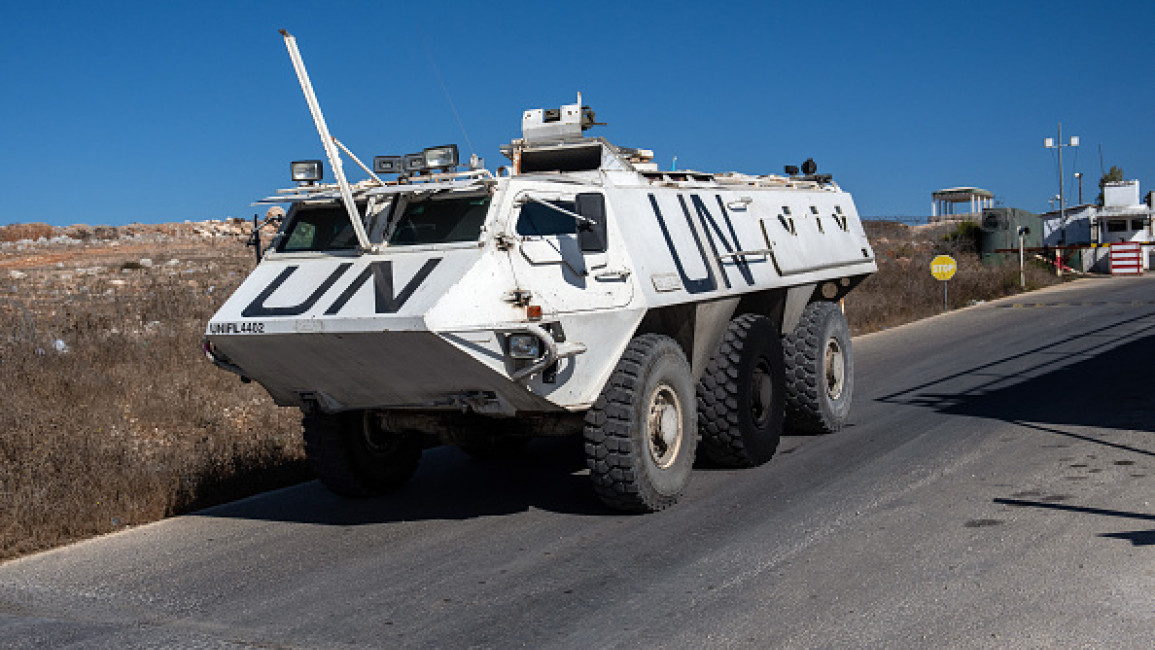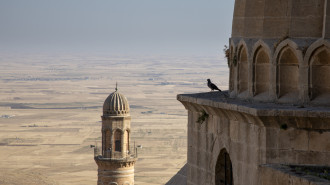UN peacekeepers in Lebanon say 'we are staying' despite Israeli attacks
United Nations peacekeepers are determined to remain at their posts in southern Lebanon, the force's spokesperson said on Thursday, despite Israeli attacks in recent days that have wounded U.N. personnel and prompted international alarm.
Andrea Tenenti said Israeli attacks on the peacekeeping force known as UNIFIL with tank shells and small arms fire had left two wounded members in hospital and knocked out some of their monitoring capabilities on Wednesday and Thursday.
"Definitely, this is probably one of the most serious events or incidents that we've been witnessing in the last 12 months," Tenenti said in an interview, referring to exchanges of fire between Israeli troops and the Lebanese armed group Hezbollah.
The force's 50 contributing countries had agreed on Thursday to keep deploying more than 10,400 peacekeepers between the Litani River in the north and the U.N.-recognized boundary between Lebanon and Israel known as the Blue Line in the south.
"We are there because the (U.N.) Security Council has asked us to be there. So we are staying until the situation becomes impossible for us to operate," Tenenti said.
UNIFIL said an Israeli tank fired at a watchtower at the force's main headquarters in Naqoura on Thursday, hitting the tower and causing two peacekeepers to fall out of it.
Israeli troops also fired at a nearby position, damaging vehicles and a communications system, and on Wednesday "deliberately fired at and disabled" cameras monitoring the area, the peacekeeping force said in a statement.
Israel said its troops operated on Thursday near a UNIFIL base in Naqoura but said it instructed the U.N. forces in the area to remain in protected spaces, then opened fire.
'In jeopardy'
In recent weeks, Israeli forces has ramped up its air strikes and is making ground incursions across the length of the mountainous border between Israel and Lebanon.
The escalation has displaced about 1.2 million people in Lebanon and led to UNIFIL virtually suspending its operational activities, said U.N. peacekeeping chief Jean-Pierre Lacroix.
Speaking to the Security Council on Thursday, Lacroix said UNIFIL forces are "increasingly in jeopardy" and confined to their bases, and that one UNIFIL contractor had already been killed.
Lacroix said UNIFIL had decided to relocate 300 peacekeepers to larger bases temporarily for their safety. Tenenti said some bases were also hosting displaced Lebanese from areas heavily bombed by Israel.
Tenenti said the attacks on the watchtower, cameras, communications equipment and lighting had limited the group's monitoring abilities. U.N. sources said they feared Israeli attacks would make it impossible to monitor any violations of international law in the zone.
Tenenti said the force still had crucial work to do "assisting local NGOs and also U.N. agencies, to bring the much-needed food and water to all these villages."
"Thousands of people have left, but thousands are still stuck in this area. So deconflicting is very important. That has been very, very challenging," Tenenti said.
The U.N.'s children's agency UNICEF said it and the World Food Programme were delivering essential aid to the thousands of families still in border villages in southern Lebanon "with UNIFIL support in implementing deconfliction mechanisms."
Journalists including Reuters also regularly coordinate with UNIFIL when traveling to southern Lebanon to make sure all parties know they are in the area.
The Israeli military asked U.N. peacekeepers last week to prepare to relocate more than 5 km (3 miles) from the border "as soon as possible, in order to maintain your safety," according to an excerpt from the message seen by Reuters.
In the same period, UNIFIL sent a letter to the Israeli military objecting to army vehicles and troops positioning themselves "in immediate proximity" to U.N. positions on several occasions, including by circling Israeli Merkava tanks around their posts or parking next to them.
The letter, dated 3 October and seen by Reuters, said Israeli forces had conducted "engineering works" on the outer perimeter of a U.N. peacekeeping post that resulted in the Israeli position and the U.N. post "effectively becoming one position."
It said those activities were "endangering the safety and security of UNIFIL personnel and premises."
The Israeli military had asked UNIFIL to withdraw from its posts in 2006, during the last major conflict between Israel and Hezbollah, according to U.N. sources. It did not withdraw at the time.
(Reuters)







 Follow the Middle East's top stories in English at The New Arab on Google News
Follow the Middle East's top stories in English at The New Arab on Google News
![President Macron was at the game to show 'solidarity' [Getty]](/sites/default/files/styles/image_330x185/public/2024-11/GettyImages-2184064735.jpg?h=199d8c1f&itok=yXTymeCt)
![Israel demolished homes in the Silwan area [Getty]](/sites/default/files/styles/image_330x185/public/2024-11/GettyImages-2183868368.jpg?h=199d8c1f&itok=TweR8vd0)
